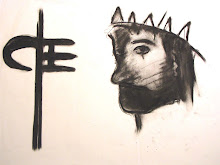My new work "Important Nonsense / Essays in Philosophy" is available via Amazon.
The weblink is: http://www.amazon.com/Important-Nonsense-Philosophy-Steven-Brutus/dp/0615608809/ref=sr_1_1?ie=UTF8&qid=1335480009&sr=8-1
This
work explores a number of themes in the psychology of philosophy. I am investigating the emotions that incite
philosophy, the emotions that sustain philosophy, and the emotions in which
philosophy results. My subjects include
suffering, which I think of as an important beginning for philosophy; philalethes, or love of truth, which I
see as animating the practice of philosophy; and hope, which I think of as an
important outcome of philosophy.
One
of the main ideas of this work is that suffering upsets the meaning we give our
lives. We cannot live without
meaning. Philosophy responds to moral
crisis and struggles to heal what suffering has injured. The high calling of philosophy has the humble
purpose of enabling us to reenter the world and act. My study of suffering and of philosophy that
struggles with it leads me to the conclusion that resilience in the face of
suffering is a choice. There is no explanation
for human strength greater than the decision to be strong. Suffering incites philosophy and philosophy
emboldens hope. My study of hope and of
philosophy that awakens it leads me to the conclusion that human beings can
only understand what is directly in front of them by imagining it into a still
unrealized future. The core function of
thinking is a kind of hoping forward.
This hope meets one obstacle after another and is repeatedly dashed and
rekindled. Philosophy is therapy for
this restless, knocked-about, rising and falling, core function of hope. This book examines several such offers of
therapy, narrates several case histories, and assesses the benefits of
philosophic interventions. All these
cures propose to liberate us from the past and all count on the power of
choice. But their recommendations are
quite different – they answer different problems – they advocate different
lives. Some try to talk us down. They look for peace, calm, unknowing. Some try to psych us up. They try to get us back in the fight, and to
love something worth fighting for. We
have to question all these strategies, thinking beyond them, to pose the
question about philosophy and the role it should play in our lives.
The
title of the book is drawn from Frank Ramsey’s 1929 essay entitled
“Philosophy.” Ramsey thought that we are
driven to philosophize because we do not know clearly what we mean. Philosophy therefore is a reflection on
meaning. It tries to make sense of
things and cut away nonsense. But he
wondered whether philosophy itself is nonsense.
He added that, if this is our finding, we should not trick ourselves
into thinking that philosophy is important nonsense.
I am
also trying to understand philosophy by wondering whether philosophy is
nonsense, and what drives us to it, and what it is trying to accomplish, and
whether it is in any way important.

